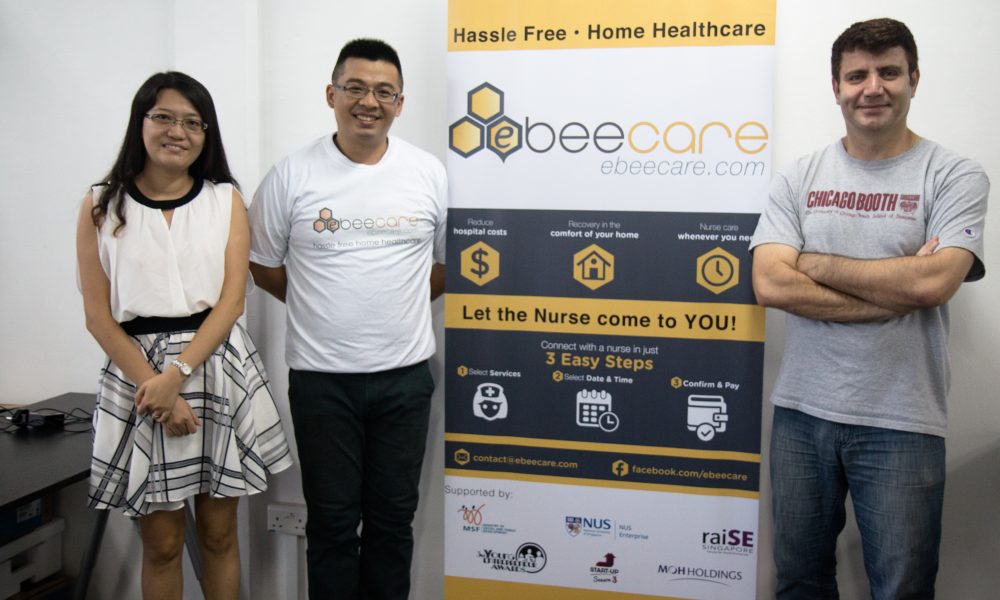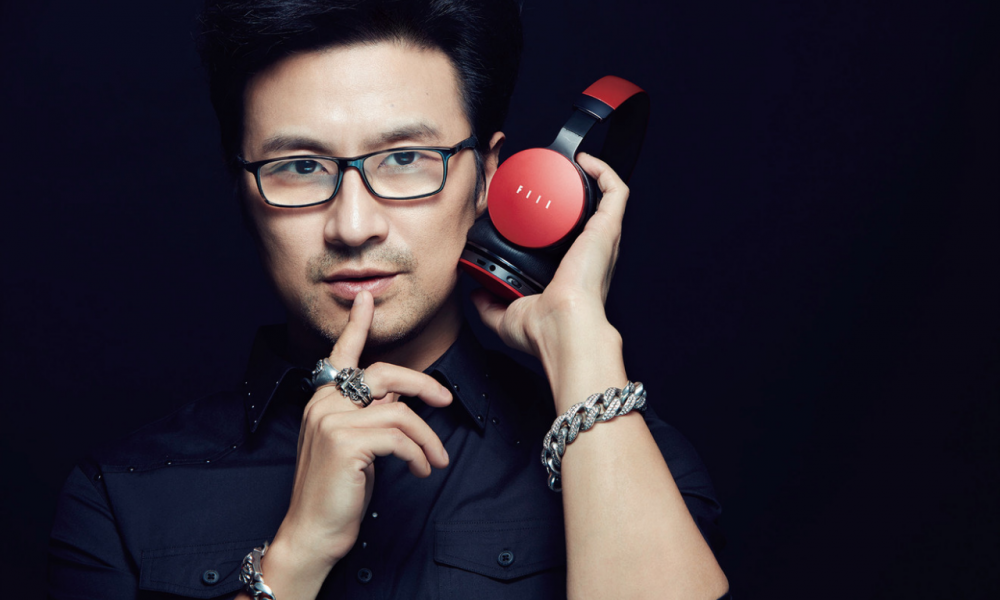Month: December 2016
Global accelerator Startupbootcamp launches digital health accelerator in Chengdu, China
Startupbootcamp, which operates a global network of industry-focused accelerator programmes, has launched their first China-based programme, a digital health accelerator in Chengdu, the capital of China’s Sichuan province.
This programme marks a joint partnership between Startupbootcamp and Thinkzon, a Chinese incubator accommodating over 500 enterprises in mobile internet, software R&D, and digital media.
Through this programme, Startupbootcamp is focused on scaling the country’s digital health ecosystem given the significant digital opportunities that exist in China by virtue of the size of its market.
Chengdu was selected due to its support for entrepreneurial initiatives from the city’s local government and healthcare industry. The region is also known for having some of the best hospitals and medical research institution in China.
“The opportunities for digital health in China are vast, not only in the Sichuan region but within the entire China,” said Carsten Kølbek, the co-founder of Startupbootcamp. “The big demand for better health services by the fast growing middle-class and the liberation of the private insurance market requires new and scalable solutions fast.”
The Chengdu programme will be the first of ten China-based accelerators as it plans to roll out in the next three years. The Chengdu Startupbootcamp is now accepting applications until 20th March 2017.
Application is open to startups from within China as well as neighbouring countries. The accelerator will focus on ventures operating in areas such as digital medical devices, diagnostics, genomics, wearable devices, and remote health monitoring.
After Chengdu, the next Startupbootcamp China programme will be in Shanghai.
Ten startups will be selected for the incubator programme which will commence in May 2017 and run for three months.
During the 3-month program period, the selected companies will be supported through every stage of their business growth – from market fit and product development to sales – through tailored and hands-on sessions.
The ten startups selected for the Chengdu program will receive RMB 100K (about US$14,400) in seed funding, free office space, mentorship from more than a hundred industry specialists, and access to Startupbootcamp’s large international network in more than 30 countries.
Besides, the ten companies will also have the opportunity to work with Thinkzone and Strartupbootcamp’s healthcare partners in Chengdu for testing and product development. One example being a clinic with a patient base of 15 million patients.
Startupbootcamp’s overall China expansion will be led by Steven Tong, who has been the Managing Director for Startupbootcamp’s Singapore program since 2015. Tong will be joined by Christina Pamela Christiansen who’ll lead the Digital Health program as the Program Director and Feng Jingyue as COO.
“We are interested in startups that have shown traction or startups that have launched a serious prototype. In our digital health programs in Berlin and Miami, we have received 300-500 applications for each program. We expect the number to be even higher in China, so the competition is going to be fierce,” Christiansen said.
Speaking on the development, Chao Wang, Director of Thinkzone’s partnership with Startupbootcamp, also said, “Startupbootcamp’s proven model for igniting entrepreneurial ecosystems will help attract world-class talent to Chengdu and cultivate our growing community of local innovators by providing them with the resources they need to succeed.”
By Vivian Foo, Unicorn Media
Healthcare startup, eBeeCare to expand into India and China in 2017
eBeeCare is a local startup that links freelance nurses and caregivers with patients through providing an online platform which simplifies the search for homecare services such as elderly care and physiotherapy.
Based in Singapore, the startup is looking to expand into the Asian markets in 2017 – placing at least 50 qualified caregivers to provide similar services in Pune, a city in China, by March next year.
“The startup aims to have around 1000 freelance caregivers in India and at least 50 full-time employees to meet additional demands.” said John Chen, the co-founder and chief executive officer of eBeeCare.
Founded in 2014, eBeeCare uses sophisticated algorithms to crawl through a user’s requirement along with the particulars of registered healthcare providers to select the most suitable care provider for each client.
Prior to this, the startup has raised capital in an undisclosed amount from Govin Capital and a US$ 35,000 grant from the SPRING Singapore and the Ministry of Social and Family Development.
With the funds raised, eBeeCare can proceed its expansion plan to the market for homecare service in the second most populous country. The startup is also looking to collaborate with hospitals to manage their nurse platforms as to better utilize resources.
“Startup needs to move fast, and we want to see the business up and running in India early next year,” said Chen. “We can move into India faster as there are fewer restrictions, and it is easier to get the government’s approval.”
However, at the same time, the startup stress that it is important to maintain strict quality control on the caregivers in India through screenings and interviews.
In Singapore, nurses who wish to join eBeeCare must be registered with the Singapore Nursing Board, have at least two years of hospital experience and undergo a face-to-face interview.
One of the potential challenges that the startup will face operating overseas is the varying demands of patients in different countries, from cultural, language or infrastructure differences.
“We adjust our services based on needs. I’m sure there are some services in normal demand in Singapore but will be high demand in India, or vice versa,” said Haluk Tanik, the co-founder and COO of eBeeCare.
Aside from India, eBeeCare is also eyeing the Chinese market, planning to begin with the province of Guangdong as due to its position as a financial hub. However, capital alone is insufficient in cracking the Chinese market.
“Doing business in China is not about the money you have,” explains Chen. “What’s more important is connections and the resources that you have.”
eBeeCare is currently in talks with a few investors in China, including Shanghai Kindly Enterprise Development Group (KDL), one of the biggest medical polymer product manufacturers in China.
Back in Singapore, the startup will also roll out expansion plans next year.
While John Chen envisions eBeeCare to be the main provider of homecare in Asian countries, in the long run, he is also maintaining a cautiously optimistic outlook.
“I’m still 50-50 on whether eBeeCare will be able to be a regional or even global service provider, but at least we have the data, we know what people want, and the best form of care services they enjoy. This, in the long run, will really be a gold mine.” the founder of eBeeCare said.
By Vivian Foo, Unicorn Media
VinaCapital and partners to open US$4 billion Vietnam casino project in 2019
Vietnam-based real estate management firm VinaCapital and its Hong Kong and Macau JV partners have set a timeline for the long-delayed US$4 billion tourism and leisure project Nam Hoi An.
The integrated tourism and leisure destination casino resort is now re-branded as Hoiana, occupying four kilometers of beachfront just outside the UNESCO World Heritage site Hoi An in Quang Nam province.
The project is expected to launch its first phase in Q1, 2019.
Hoiana’s first phase will feature a resort and casino complex including a 445-room hotel, 220 residential apartments for sale on a buy-to-let basis operated by Hong Kong’s New World Hotels.
Besides, the project also includes an extra-luxury Rosewood resort offering 75 guests villas and 25 exclusive residences, as well as a golf course designed by Robert Trent Jones II.
Hoiana will also comprise a beach club, a hall to host entertainment activities and events, a watersports and diving center, retail promenade as well as a range of new bars and restaurants as it is completed.
VinaCapital acquired the project in 2007 and forged an alliance with Malaysia’s Genting Berhad to develop the township. However, the Malaysian partner soon exited the project in 2012, leaving VinaCapital to scout for new investors
Last year, the Vietnam firm diluted its holding in the mixed-use development as it announced a partnership with Hong Kong Gold Yield Enterprises, a subsidiary of diversified group Chow Tai Fook and Macau-based junket operator Suncity Group.
“Hoiana is poised to become Asia’s most renowned resort destinations, and a new benchmark for high-end tourism in Vietnam,” reportedly said Don Lam, CEO of VinaCapital.
“For enterprises, it’s the land of golden opportunity,” he added, referring to the tourism attractiveness of the central city Hoi An, where the project is located.
The developers also plan further investment for the US$ 4 billion township in the next construction phases, which are due to be completed over the course of the next 10 to 15 years.
By Vivian Foo, Unicorn Media
Backed by Chinese Rock Star Wang Feng, China’s FIIL to be the next Beats by Dr. Dre
Chinese rock star Wang Feng is recreating a Dr. Dre phenomenon with his headphones brands – FIIL. Like Beats, the Beijing-based FIIL designs are fashionable but still high-fidelity.
Rising to fame in China in the late 1990s, Wang Feng is a rock veteran who is involved in a lot of trades, from working on his headphone startup, launched last year to holding the position as one of the panelists on China’s version ofThe Voice.
Leon Wu, FIIL’s CTO with a decade of experience in audio engineering, name-checks Beats and Bose as brands that the startup admires and model after. “We try to absorb good things from both,” he said.
“The Beats marketing strategy,” Wu adds, “…is also one of the things FIIL would like to emulate.”
Looking at Dr. Dre’s array of product placement, indeed FIIL has its own version, as Wu told, “During the 24th birthday celebration of Hong Kong singer G.E.M., Wang gave her a pair of FIIL headphones. She put the headphones on in front of a bunch of reporters, and it attracted a lot of attention and a boost in sales.”
Since then, FIIL has been in the hype, benefiting from a ton of free and glamorous publicity from Wang Feng’s celebrity friends when they wear them in front of paparazzi or when the company’s first product, the FIIL Wireless, won design awards from Red Dot.
A majority of FIIL’s users are from mainland China, but like a number of young startups across the nation, the audio equipment maker is also looking to advance onto the international platform in the hope of replicating the success of DJI, Xiaomi, and One Plus.
A step to accomplish the feat, FIIL has recently launched itself on Kickstarter on December weekend, testing the waters with Carat Pro, a set of wireless headphones that comes with some sporty features.
The wireless buds do real-time heart-rate monitoring, audio coaching, and tracking of distance, steps and workout duration – a first for the startup to blend a fitness tracker with its earphones.
“We want to go above and beyond the scope of traditional earbuds with the FIIL Carat Pro earbuds,” said FIIL president and Rock Star Wang Feng.
FIIL Carat Pro earbuds also include Valencell’s PerformTek biometrics, to create a high-tech sports earbud that is said to be not only fashionable but even more accurate and advanced than smartwatches and fitness trackers.
The earbuds are also modeled by actress Zhang Ziyi, star of Crouching Tiger, Hidden Dragon who was married to Wang Feng last year.
As per details of the project, the Kickstarter project targets a pledge to raise US$50,000 in 40 days and will end on Jan 15, next year. To date, the project has reached half the funds backed by 189 backers.
At present, there are only five types of FIIL headphones on the market: FIIL, FIIL Wireless Bluetooth, FIIL Bestie headphones, FIIL Diva Pro Headphone and FIIL’s Carat Pro. The headphones cost between 599 and 1,999 yuan (about US$ 86.20 and US$ 287.80).
In 2015, FIIL has received a US$10 million seed funding. Looking into the future, FIIL’s plan to cover not just headphone, but to extend its reach to speakers and even smartphones as well.
By Vivian Foo, Unicorn Media
IdeaSpace launches 2017 Philippines startup competition
IdeaSpace Foundation, an early-stage technology incubator and accelerator in the Philippines has formally launched its National Startup Competition for 2017 and has begun accepting innovative technology ideas.
IdeaSpace is a non-profit foundation backed by First Pacific, Metro Pacific Investments Corp (MPIC), Metro Pacific Tollways Corp (MPTC), MPIC hospital group, PLDT, Meralco, Smart Communications, Maynilad, Voyager Innovations, and PayMaya Philippines.
On its fifth year, the 2017 IdeaSpace National Startup Competition will be increasing its finalist quota, accepting 15 startups instead of the usual 10, into the final acceleration process.
The acceptance of more startups is part of IdeaSpace’s efforts to expand and accommodate the local startup ecosystem, which it noted has seen robust growth over the past four years.
“We’ve seen very inspiring stories of startup founders joining IdeaSpace over the years, from husband-and-wife tandems to students looking to make their own mark in the world,” said the Executive Director of IdeaSpace, Diane Eustaquio.
“This year, we’re looking to extend our support to more startup founders with burning passion for starting up their own business and helping the country progress with the help of technology and innovation,” she adds.
All 15 startups that make it to the finals next year will receive an equity fee funding of PHP 500,000, which translates to an approximate amount of US$ 10,000.
Besides, the teams will also receive support for housing, transportation, incorporation, office space, communication, software, classes and training, as well as mentorship from executives under First Pacific companies, the total value of which amounts to more than PHP 1 million.
However, IdeaSpace will not have a stake in their early-stage startups.
Newly appointed IdeaSpace president Butch Meily said the foundation has been extending its capacity into a – full ecosystem support. This is to ensure that most of the startups are guided every step of the way.
“We’ve realized over the years that startups need as much support as they can get in every step of the process, from bringing their ideas to life to launching them into the market, and even to making their startups grow further,” Meily explains.
But aside from incubation and acceleration programs, IdeaSpace has also been an avid supporter of startup community events in the country and overseas, such as the annual Geeks on a Beach conference, the Slingshot MNL programme by the Department of Trade & Industry, as well as the DLD Tel Aviv Innovation Festival.
Since launching in 2012, IdeaSpace has incubated and funded a total of 52 startups, some of which have grown and evolved into large businesses and enterprises such as PinoyTravel and TimeFree Innovations.
Interested individuals or groups may submit their unique startup ideas by logging on to apply.ideaspacefoundation.org. Deadline for submission of ideas is on January 12, 2017.
By Vivian Foo, Unicorn Media





